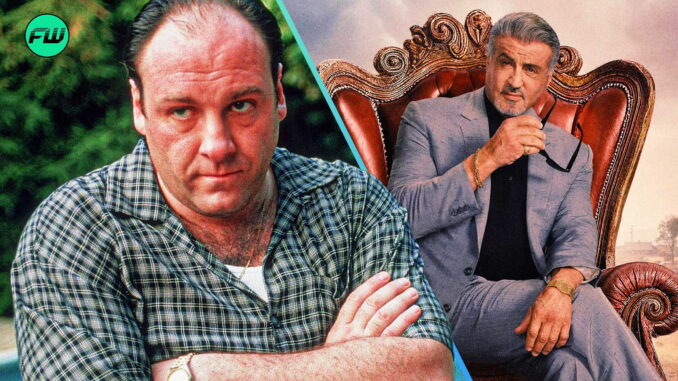
When you think of iconic mobsters in television, names like Tony Soprano inevitably come to mind. With his larger-than-life persona and ruthless tactics, Tony defined a generation of television antiheroes. But what if we told you there’s a new mobster in town who’s carving out a very different niche? Enter Dwight Manfredi, played by Sylvester Stallone in the hit series Tulsa King. While both characters operate in the criminal underworld, they couldn’t be more different. Let’s dive into what sets Dwight apart from the infamous Tony Soprano.
The Rational Mobster: Understanding Dwight Manfredi
A Bully? Not Dwight!
One of the first things to note about Dwight is that he’s not your typical mobster. According to Tulsa King showrunner Terence Winter, Dwight embodies a more rational and reasonable approach to his criminal activities. Unlike Tony, who often resorts to thuggish behavior, Dwight is portrayed as a thoughtful character.
“I think Dwight, at heart, is a rational, reasonable guy. He’s not a bully,” Winter explains. This sentiment captures the essence of what makes Dwight a fresh take on the mobster archetype.
Reflective and Well-Read
Having spent time in prison, Dwight had the opportunity to reflect on his choices, making him a more complex character. This introspection has led him to develop a broader base of knowledge about the world, setting him apart from many traditional gangsters.
“In a different time and place, Dwight would have grown up to become a businessman,” Winter adds, highlighting that while Dwight may be rough around the edges, he has the potential to be something more.
Humor Meets Humanity: The Unique Charm of Dwight
A Lighter Side to the Mobster Life
One of the most refreshing aspects of Tulsa King is how it injects humor into the mobster genre. Stallone’s Dwight isn’t just about intimidation; he also showcases a humorous and humane side that audiences have come to love.
In a genre often dominated by dark themes, Dwight’s ability to blend comedy with criminality adds layers to his character. Winter emphasized that the show allowed Stallone to explore this side of his acting that’s often underrated.
“He said, ‘This fits me like a tailor-made suit. This is who I am in real life — if I were a mobster,’” Winter recalled. This genuine enthusiasm resonates in every scene, making Dwight a more relatable and engaging character.
Tony Soprano vs. Dwight Manfredi: A Tale of Two Mobsters
The Thug vs. The Thoughtful
So how do Dwight and Tony compare on a deeper level? While both characters inhabit the same criminal universe, their motivations and methods set them apart dramatically.
- Tony Soprano thrives on intimidation and manipulation, often resorting to violence to get what he wants. His sociopathic tendencies make him a compelling yet terrifying figure.
- Dwight Manfredi, on the other hand, is grounded in reason and respect. While he has no qualms about taking action when necessary, his first instinct is to engage with people thoughtfully.
This contrast serves as a testament to Winter’s storytelling prowess, showcasing the range of characters that can exist within the mob genre.
The Art of Dialogue: Stallone’s Stellar Performance
Monologues that Resonate
One of the standout elements of Tulsa King is its dialogue. With significant monologues and comedic exchanges, the series allows Stallone to shine in a way that audiences haven’t seen before. It’s not just about the physicality of the character; it’s about the words he uses to connect with others.
Winter notes that Stallone’s excitement about the dialogue was palpable. He was eager to showcase a different side of himself—one that can convey emotion and humor just as effectively as he can deliver a punch.
“People know him as Rocky or Rambo and that ‘I don’t think people even know that I can actually talk,’” Winter shared, illustrating how Tulsa King gives Stallone a platform to showcase his acting chops beyond action.
Conclusion: A New Kind of Mobster
Sylvester Stallone’s Dwight Manfredi in Tulsa King represents a refreshing departure from the traditional mobster narrative epitomized by characters like Tony Soprano. With his rational mindset, introspective nature, and humorous demeanor, Dwight emerges as a character who challenges our preconceived notions about what a mobster can be.
By blending humor and humanity into the portrayal of a criminal, Tulsa King not only entertains but also deepens our understanding of complex characters in the mob genre. As viewers continue to tune in, it’s clear that Dwight is not just another mob boss; he’s a character that resonates on multiple levels.
